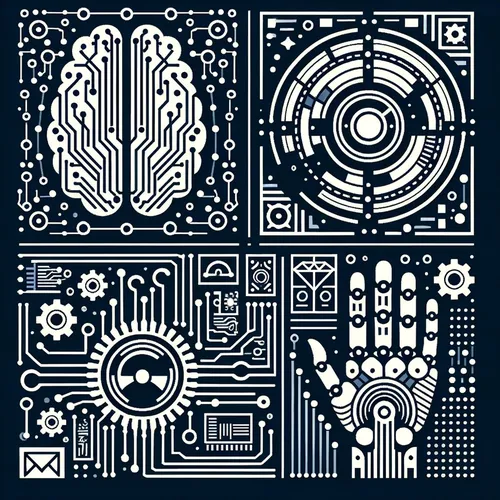Robots Steal the Show at CES 2025: AI Goes Mainstream as Tech Giants Double Down on Automation
- Author
- Quiet. Please
- Published
- Fri 05 Sep 2025
- Episode Link
- https://www.spreaker.com/episode/robots-steal-the-show-at-ces-2025-ai-goes-mainstream-as-tech-giants-double-down-on-automation--67642108
This is you Emerging Technology Trends: AI, Robotics & Digital Innovation podcast.
Emerging technology breakthroughs in 2025 are rapidly changing the landscape for artificial intelligence, robotics, quantum computing, blockchain, and the internet of things. Recent news has highlighted the debut of generative artificial intelligence-powered robots at CES 2025, where companies demonstrated empathetic robots capable of personalized assistance and intuitive communication. Meanwhile, tech giant NVIDIA is scaling up its investment in industrial robots for smart manufacturing, reinforcing the cross-industry trend towards greater automation. In the blockchain sector, major banks have begun integrating quantum-resistant protocols, responding to forecasts of quantum computing’s impact on cryptography within the next decade.
The integration of artificial intelligence into robotics is the most notable trend this year, with robots now capable of understanding natural language commands and demonstrating adaptive decision-making in real time. Advances in generative artificial intelligence interfaces mean even non-experts can control robots in complex scenarios, smoothing their entry into diverse settings from healthcare to logistics. Collaborative robots, or cobots, are increasingly relied on by manufacturers. Their intuitive controls and enhanced safety are enabling closer interaction with human colleagues, making production lines both safer and more productive. Across industries, the convergence of artificial intelligence, robotics, and data-driven automation is fueling a surge in productivity and cost efficiency, with the global robotics market projected by Nasdaq to double to over 150 billion dollars by 2030.
Investment patterns confirm a robust appetite for innovation, with the artificial intelligence in robotics sector closing over 1700 funding rounds and average rounds raising more than 11 million dollars, according to StartUs Insights. Startups focused on autonomous indoor robots, computer vision in medical robotics, and robotic automation for agriculture are leading the way, while giants like Boston Dynamics and BDC Capital are among the top investors. However, market growth comes with regulation and ethical concerns, particularly around data privacy, algorithmic bias, and job displacement. Governments are responding with new policies on explainable artificial intelligence, transparency standards, and cross-border data flows, but ongoing dialogue between regulators, technologists, and stakeholders will be critical.
Challenges around interoperability, system integration, and workforce acceptance persist, particularly for small and medium-sized enterprises. Best practices emerging from today’s leaders include prioritizing modular architectures, embracing continuous employee upskilling, and leveraging Robot-as-a-Service to reduce upfront risk. Enterprises investing in predictive analytics and closed-loop automation systems are already experiencing downtime reductions and improved resilience.
Looking forward, quantum computing will accelerate artificial intelligence model training and blockchain is set to transform internet of things security. For listeners building technology strategies, now is the time to evaluate pilot projects in artificial intelligence-enabled robotics, invest in cross-disciplinary research, and stay ahead of regulatory changes. Keeping solutions people-centric and modular will be key to sustainable adoption.
Thank you for tuning in today. Be sure to come back next week for more. This has been a Quiet Please production, and for more, check out QuietPlease dot AI.
For more http://www.quietplease.ai
Get the best deals https://amzn.to/3ODvOta
